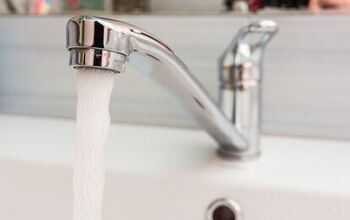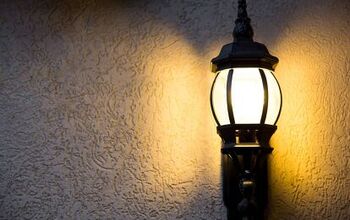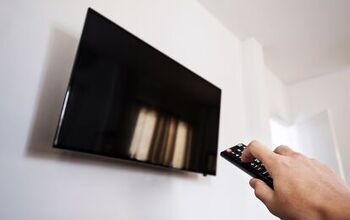Why Is My Sewer Bill So High? (Here Are The Culprits)

An unusually high sewer bill can leave us scratching our heads. If you’ve recently had a more expensive sewer bill than expected, don’t fear – there are several common reasons for this. In this article, we will outline why your sewer bill is higher than usual and what you can do to bring the bill down. Thankfully, this problem can be remedied.
Your sewer bills will be high if you increase your water use or if there is a leak in your plumbing. Pay attention to your water usage and limit it to decrease your sewer bills. Hire a plumber to inspect your pipes if your water usage is low but your sewer bills are high.
A high sewer bill is the result of increased water consumption. If you lower your water consumption, you will lower your bill. In the next section, we will go over several reasons you could be using more water than normal.
Do You Need to Hire a Plumber?
Get free, zero-commitment quotes from pro contractors near you.

Reasons Your Sewer Bill is Higher than Normal
Figuring out the culprit of a high sewer bill can take some detective work. Sometimes, the reason for your high bill is hiding in plain sight. The best way to find the instigator is to stare at the general and then hone in on the specific.
First, let’s look at some general reasons your sewer bill could be elevated, then we’ll pinpoint the specific issues:
- Leaks
- Appliances
- Personal use
Leak Causing High Sewer Bill
Here are a few places to look for leaks:
- Toilets
- Sinks
- Showers
The following chart shows the percent of water that is used by each unit:
Unit or Appliance | Percent of Household Water Consumption |
| Toilet | 27% |
| Shower | 18% |
| Clothing Washer | 22% |
| Sink Faucet Drains | 15% |
Toilets contribute to about 27 % of your home’s water consumption. They are the main contributor to your sewer bill, so you want your toilet to run as efficiently as possible.
Toilet Leaks
In many models, there is a flap in your toilet tank that covers the drain to your toilet bowl. When you flush, this flap comes up momentarily and then closes. If the flap doesn’t close properly, you will have water leaking into your toilet bowl. Letting this issue go would be like continually flushing your toilet – it will waste water and raise your sewer bill.
Here’s how you find a toilet leak.
- Look into the toilet bowl. Do you see any water trickling in without flushing? This is a severe leak. You can also place several drops of dye in the toilet tank. If you see the water in the toilet bowl changing colors, your toilet leaks.
- Listen for the sound of running water. You may not be able to see the water trickling in, but you might hear a slight gurgling noise in the tank.
- Feel the handle on your toilet. Does it feel loose and shaky? This could mean the flap or float isn’t working correctly. The handle should feel nice and smooth when you flush the toilet.
If you found any of these defects with your toilet, then you may have discovered the culprit to your high sewer bill. To fix your toilet, you will need to open up the rear tank and adjust the float and flap. If you’re having trouble, don’t hesitate to hire a professional.
Sink and Shower Leaks
Sink and shower leaks are another reason for a high water bill. If your sink or shower is leaking just ten drops per minute, this will result in 500 gallons of water wasted annually.
Look around the edges of the connection points for water leaks. Make sure the area is dry before checking for leaks. You may need to retape your connections or replace the unit if it is outdated.
One way you can lower your sewer bill is to install updated aerators to the end of your faucets. The aerators concentrate the water as it sprays out. This causes the pressure of the spray to be greater and the water consumption to be less. It’s a win-win solution.
How to Find a Leak
When looking for a leak, use the techniques we mentioned for your toilet, shower, and sinks. You might not be able to actively see the leak, but you might see what the leak is doing. For example, maybe there is a moist area on the floor under your sink. You might also see mold and mildew forming near the leak.
If you’ve looked everywhere and can’t find a leak, there is one more thing you should do before ruling out a leak: check your water meter. Here’s how you do it:
- Read your water meter at night.
- Don’t use any water throughout the night, and make sure all appliances are off.
- Check your water meter the next morning. If the meter changed, you likely have a leak.
It’s crucial that you take care of a leak once it’s identified. Though they seem innocent, over time a leak can waste massive amounts of water. See this chart below:
Leaking Appliance | Water Wasted |
| Toilet | 6000 Gallons/month |
| Sprinkler | 6200 Gallons/month |
| Faucet at 1 drop/second | 3000 Gallons/year |
| Shower 10 drops/minute | 500 Gallons/Year |
If it’s not a leak, it could be an appliance malfunction.
Appliances Causing High Sewer Bill
Old or broken washers and dishwashers can cause elevated sewer rates. If your appliances are old, they are likely not as efficient as an updated design. However, don’t let that fool you into handwashing.
Even the most inefficient dishwashers only use about 6 gallons of water. This is in contrast to almost 30 gallons of water washing the dishes by hand.
Also, consider converting to a front-loader washing machine. Front-loading washers use far less water than the traditional top-loader.
If you suspect one of your appliances has malfunctioned, contact a local professional who can service your specific unit. When buying new appliances, look for energy star rated units.
If your appliances are all in top condition, the high bill may have resulted from personal influence.
Personal Reasons for High Sewer Bill
If you’ve crossed all the previous ideas off the list, there may be a human reason for your high sewer bill. Here’s a couple of ideas to consider:
- Do you have any new roommates? If you have a new visitor who tends to take long showers or if you have more people in your house using water, this will cause a raised sewer bill. Talk to people in your home and be sure you are all on the same page. While that 30 minute long shower may be warm and cozy, it’s probably costing you a lot of money!
- Did you recently refill the pool? Filling your pool for the first time with a hose will, at least, double your bill.
- How often do you do your laundry? Doing your laundry accumulates quite a bit of wastewater. Even if you use a high-efficiency washer, you can expect to use between 15 and 30 gallons of water a load. Try to designate one day out of the week to do your laundry and make sure that each load is full!
- Have you installed a new sprinkler system? Make sure it’s working efficiently.
- Did the prices go up? Sometimes, monthly sewer prices are raised by local officials to cover the increased cost of water treatment. Check your area to see if fees have changed.
- How often do you run your dishwasher? Although modern dishwashers are much more efficient, the number of gallons used can add up if you’re running it every day. Instead, try to do fewer loads and wait until the dishwasher is completely full. The more dishes you wash, the less often you’ll need to run the appliance.
Try to pinpoint any of these human elements. Also, some water and sewer bills are calculated quarterly. This means that something you did three months ago could affect your sewer bill today. Think back – did anything happen months ago that caused you to use excessive amounts of water?
There is one other thing to consider, though it’s very rare, and that is someone in your neighborhood tapping into your water line. See here for more on that.
There is nothing wrong with hiring a professional to assess why you are using more water than usual. You don’t want to let a hidden leak go. On top of wasting water, a leak could lead to rot and structural damage.
Do You Need to Hire a Plumber?
Get free, zero-commitment quotes from pro contractors near you.

Related Questions
Most bills fall into the $30-$50 monthly range; however, sewer bills vary broadly based on where you live. Also, many sewer and water bills are combined. Contact your local officials for information on your area’s sewer bill pricing. Most cities and townships have a website with this information.
Why am I using so much water?If you have no idea why you’re using more water than expected, you likely have a leak. Look around your piping to find it, or hire a professional. You could also be using more water if you have someone new living with you.
How do I reduce my sewer bills?You reduce your sewer bill by lowering your water usage. Fix leaks, take faster showers, and install water-efficient appliances.

Gideon is a writer and hobby woodworker. He enjoys working on projects small and large-everything from crafting boxes and benches, to replacing carpet and landscaping a yard.
More by Gideon Zielinski



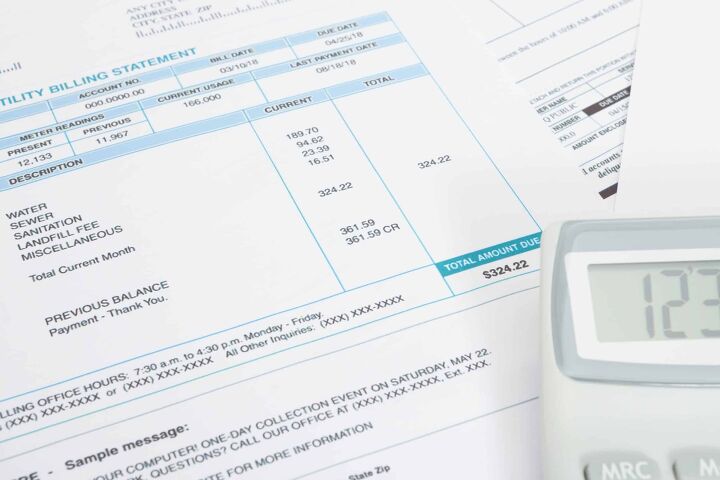







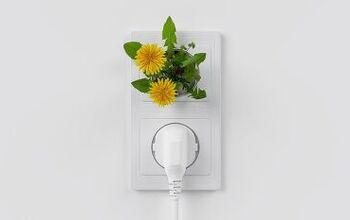

![10 Best Zero Turn Mowers – [2022 Reviews & Ultimate Buyer's Guide]](https://cdn-fastly.upgradedhome.com/media/2023/07/31/9070522/10-best-zero-turn-mowers-2022-reviews-ultimate-buyer-s-guide.jpg?size=350x220)

